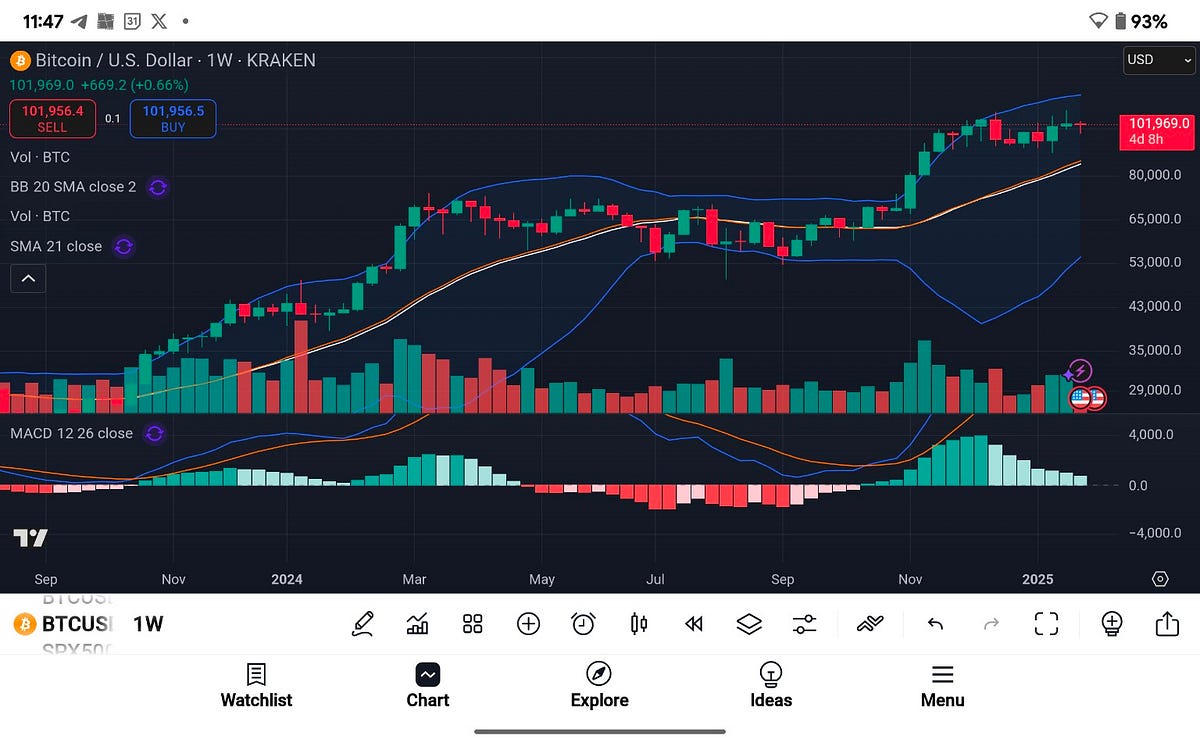Are Your Cryptos Insured? Here’s a List of Crypto Service Providers Offering Insurance for Your Holdings
 Photo by Traxer on Unsplash
Photo by Traxer on UnsplashHacks, scams, and theft are common in the crypto world, and unfortunately, they’re on the rise, largely due to the rapid growth of the crypto market.
Hackers and scammers target crypto holders or service companies like exchanges, exploiting vulnerabilities to steal crypto funds.
In the traditional financial system, nations counter large losses by offering insurance for bank deposits. However, in the decentralized world of crypto, there is still no comprehensive insurance available for crypto holdings.
Finding service providers that offer insurance for your crypto can be challenging. To help, I’ve compiled a list of different crypto service providers that offer insurance for your holdings.
Before diving into the list, it’s important to note that no insurance policy guarantees the safety of all your crypto holdings across different platforms. That’s why we categorize insurance into three different types:
1. Insured Exchanges
The first and easiest entry point into the crypto world is through exchanges.
Exchanges facilitate the buying, selling, and holding of cryptocurrencies while offering features like futures and spot trading.
Because exchanges hold the majority of crypto assets, they become prime targets for hackers. Previous incidents have shown that exchanges are especially vulnerable to hacking.
This raises concerns about the safety of your holdings on exchanges in the event of a hack or other adverse events. To address these concerns, several exchanges now offer insurance. Here are some that provide insurance for your holdings:
Binance
Binance, the largest crypto exchange globally, ensures the safety of your funds through its own insurance plan.
Binance allocates 10% of its total trading fees to an insurance fund, which was used to cover $40 million in losses during a recent attack.
Coinbase
Coinbase, one of the most popular exchanges worldwide, prioritizes the security of your funds.
All digital currency held online is insured against physical security breaches, cybersecurity breaches, or employee theft.
However, it’s important to note that Coinbase stores only 2% of customer funds online, with the remainder held in offline storage.
Bittrex
After seeing the hacking attempts on the big exchanges, Bittrex, one of the leading crypto exchanges in America, recently insured their digital assets held on cold storage (offline storage).
This insurance has a limit of up to $300 million, including internal and external theft.
Crypto.com
Crypto.com, a pioneering payment and cryptocurrency platform offering wallets, cards, and more, recently secured a record-breaking $360 million insurance policy to cover potential losses of coins stored in special offline vaults.
Gemini
Founded by the Winklevoss twins, Gemini is a trustworthy U.S.-based exchange platform.
In 2020, they launched their own insurance coverage through Bermuda-based Nakamoto LTD, providing up to $200 million in coverage for virtual currency held on behalf of customers.
Before launching their own coverage, Gemini’s U.S. dollar funds were FDIC insured up to $250,000.
While these exchanges offer insurance for your holdings, it’s important to understand that none provide full coverage, and most focus on the size of their liquidity pools.
2. Insurance Backed Wallets
At the end of the day, the balance in your crypto wallet is what matters most, especially when it comes to online wallets, which are more vulnerable to hacks.
To safeguard your crypto funds, many wallets now partner with third-party crypto insurance providers.
Coincover
Launched in 2018, Coincover is a leading brand offering insurance protection for crypto wallets.
They provide deposit protection, crypto key storage and recovery, lost key protection, cryptocurrency wills, theft insurance, and accumulation plans for customers.
Regulated by the UK Financial Conduct Authority and backed by venture capital and the Welsh Government Bank, Coincover’s insurance is provided by Lloyds of London members.
Their service is used by wallets, as shown in the image below.

3. Smart Contract Insurance
Smart contracts have made it easier to create crypto assets.
However, this ease has also led to the rise of scams and vulnerable projects that harm users. The DAO Hack, which resulted in the theft of $50 million worth of Ethereum and caused the entire Ethereum network to split, is a prime example.
To counter such incidents, several insurance providers now offer coverage for smart contracts:
Nexus Mutual
Nexus Mutual isn’t a traditional insurance company but uses the Ethereum blockchain to allow people worldwide to share insurance risks without needing a centralized insurance company.
To use Nexus, you must first join by purchasing their NXM token, which grants participation in the decentralized autonomous organization (DAO).
All decisions are voted on by members, who are incentivized to pay genuine claims.
Currently, Nexus focuses on risk management related to securing risks and potential bugs in smart contract code.
Opyn.
While Nexus focuses on the technical aspects of smart contracts, Opyn offers coverage for both financial and technical risks.
Built on the Convexity Protocol, a generalized options protocol on Ethereum, Opyn provides coverage for DeFi users to protect their deposits.
Opyn’s platform is a two-sided marketplace designed using put options (oTokens) on the Convexity Protocol. On the other side, ETH holders can earn premiums on their ETH holdings by providing insurance.
For more details on how Opyn works, you can read their blog.
Conclusion
As mentioned earlier, there is no comprehensive insurance available in the crypto market. Therefore, you must choose the best option from the different insurance categories and select the most suitable platform.
Are Your Cryptos Insured? was originally published in The Capital on Medium, where people are continuing the conversation by highlighting and responding to this story.

 2 months ago
44
2 months ago
44









 English (US) ·
English (US) ·